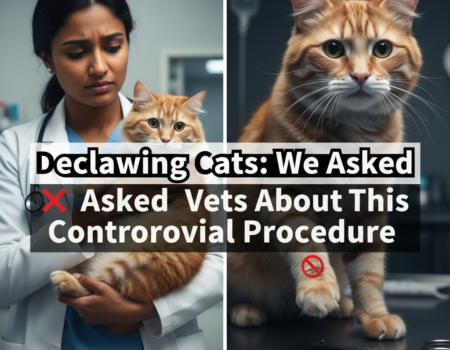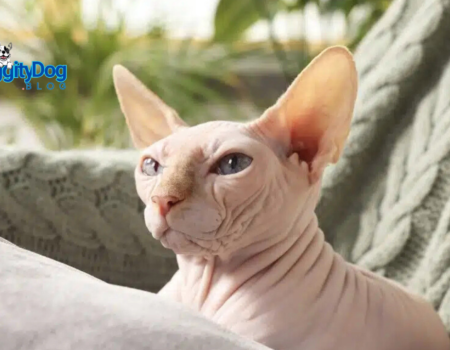“Until one has loved an animal, a part of one’s soul remains unawakened.” – Anatole France
As cat lovers, we want to do everything we can to keep our feline companions happy and healthy. And when it comes to their diet, we often find ourselves wondering what human foods are safe for them to eat. One such food that many pet parents wonder about is ham. Can cats enjoy a tasty treat of ham every now and then? Let’s delve into this question and discover the safe feeding tips for cats when it comes to ham.
Key Takeaways:
- Ham can be given to cats in moderation as a treat.
- Choose plain, unseasoned ham without any harmful additives.
- Exercise portion control and avoid giving ham to your cat daily.
- Consider alternative cat-friendly foods that provide similar nutrients.
- Consult with your veterinarian for personalized advice on feeding ham or any other human foods to your cat.
Is Ham Safe for Cats to Eat?
Ham can be safely consumed by cats in small amounts without posing any toxic risks. However, it is essential to be mindful of the type of ham you offer to your feline friend. Opt for plain, unseasoned ham to avoid harmful ingredients, such as added salt or seasoning, that may negatively impact their health.
Processed deli ham should be avoided when feeding cats as it often contains high levels of sodium and additives that can be detrimental to their well-being. To prioritize your cat’s feline health, it is crucial to ensure that any food given to them, including ham, is safe and appropriate for their sensitive digestive system.
If you choose to offer ham to your cat, it should be seen as a special treat rather than a regular occurrence. Moderation is key when feeding ham to cats, as excessive consumption can lead to weight gain and other health issues. Remember, your cat’s safety and overall well-being should always be the top priority in determining their diet.
Benefits of Feeding Cats Ham in Moderation
While ham should be given sparingly, it does offer some nutritional benefits for cats. Ham contains lean proteins that are essential for a cat’s muscle development and overall health. Additionally, ham includes minerals such as selenium, phosphorus, zinc, potassium, iron, copper, and magnesium, which support various bodily functions in felines.
However, it is important to note that the high sodium and fat content in ham mean that it should be fed cautiously. The nutritional benefits of ham can be obtained through other safe alternatives as well, ensuring a balanced and varied diet for your furry friend.
To visualize the nutritional content of ham, take a look at the table below:
| Nutrient | Amount per 100g of Ham |
|---|---|
| Protein | 16g |
| Fat | 4g |
| Sodium | 1000mg |
| Calories | 100 |
While this may showcase certain nutritional benefits, it is essential to remember that ham should still be given sparingly and in moderation to avoid any negative health effects.
“Ham can be a safe and occasional treat for my feline friend, as long as I choose plain, unseasoned ham without any harmful ingredients.” – Cat Owner
Nutritional Benefits of Ham for Cats
While ham should only be given as an occasional treat, it does offer some nutritional benefits for cats. Ham is a good source of lean protein, which is essential for a cat’s muscle development and overall health. It also contains important minerals like selenium, phosphorus, zinc, potassium, iron, copper, and magnesium, which can support various bodily functions in felines
.
However, it’s important to note that ham also has a high sodium and fat content. Feeding ham to cats should be done sparingly to prevent any negative health effects associated with excessive salt and fat intake.
A balanced feline diet should primarily consist of nutritionally complete and specially formulated cat food. While ham can provide some supplementary nutrients, it should not replace a cat’s main diet. It’s always best to consult with a veterinarian to ensure your cat’s dietary needs are met.
| Nutrient | Amount per 100g of Ham |
|---|---|
| Protein | 18g |
| Fat | 9g |
| Sodium | 960mg |
| Iron | 1.5mg |
| Phosphorus | 137mg |
| Zinc | 1.4mg |
As seen in the table above, ham contains a significant amount of protein, which is beneficial for a cat’s muscle development and overall health. However, it’s essential to note that ham also has a high sodium content, which can be harmful to cats in large amounts. Additionally, the fat content in ham should be monitored, as excessive fat intake can lead to weight gain and other health issues in cats.
It’s important to prioritize your cat’s well-being by providing a balanced and appropriate diet. While ham can be enjoyed as an occasional treat, moderation is key to ensure your cat’s optimal health and nutrition.
Feeding Tips for Giving Cats Ham
When it comes to feeding ham to your cat, it’s essential to prioritize portion control and ensure their overall well-being. Cats have specific caloric requirements, and excessive consumption of ham can lead to weight gain and other health issues. Here are some feeding tips to keep in mind:
- Small amounts: Stick to giving your cat small, controlled portions of ham. It’s recommended to offer less than a teaspoon of ham at a time to prevent overeating.
- Daily limit: Avoid giving ham to your cat on a daily basis. While it can be a tasty treat, it should not become a regular part of their diet.
- Plain and additive-free: Always choose plain, unseasoned ham without any harmful additives or seasonings. Cats are sensitive to certain ingredients, and added spices or salt can be detrimental to their health.
Remember, ham should be considered a special treat for your cat rather than a staple food in their diet. Prioritizing their nutritional needs and providing a balanced and appropriate cat diet is crucial for their overall health.
“Giving small, controlled portions of plain ham can be a delightful treat for your feline companion, as long as it’s done in moderation and alongside a healthy, balanced diet.”
– Dr. Samantha Roberts, Veterinarian
Can Kittens Eat Ham?
Kittens have more delicate digestive systems compared to adult cats, and their nutritional needs are different. While ham can provide valuable nutrients to kittens, it should be given sparingly and in small amounts. It’s important to prioritize their balanced kitten food to ensure they receive all the necessary nutrients for healthy growth. As a general rule, it’s best to consult with your veterinarian before introducing ham or any new food into a kitten’s diet.
If you’re considering offering ham to your kitten, here are some key points to keep in mind:
- Introduce ham gradually and in small quantities. Start with a tiny piece and observe how your kitten reacts to it.
- Choose plain, unseasoned ham without any added salt or harmful ingredients. Avoid processed deli ham as it may contain high levels of sodium and additives.
- Remember that ham should be given as an occasional treat and not as a regular part of your kitten’s diet.
Always consult with your veterinarian before making any changes to your kitten’s diet. They will be able to provide personalized advice based on your kitten’s specific needs and health condition.
Safety Precautions and Considerations
When it comes to the safety of your beloved feline friend, it’s essential to be cautious and informed about feeding them ham or any other human food. While ham can be given to cats in moderation, there are certain precautions and considerations to keep in mind.
First and foremost, it’s crucial to avoid feeding your cat processed deli ham. These types of ham often contain high levels of sodium and additives that can be harmful to your cat’s health. Instead, opt for plain, unseasoned ham without any added salt or harmful ingredients.
“Feeding your cat plain, unseasoned ham without any added salt is the safest option.”
In addition to being selective about the type of ham you give your cat, it’s important to be aware of other human foods that are toxic to cats and should never be given to them. These foods include:
- Chocolate
- Onions
- Garlic
- Grapes
- Raisins
- Products sweetened with xylitol, a sugar substitute
- Alcoholic beverages
- Unbaked bread dough
These foods can be extremely harmful to cats and can lead to serious health issues. If you suspect that your cat has ingested any of these toxic substances, it’s essential to contact your veterinarian immediately for guidance and assistance.
Foods Toxic to Cats
| Toxic Food | Potential Hazards |
|---|---|
| Chocolate | Contains theobromine, which can cause vomiting, diarrhea, rapid breathing, abnormal heart rhythm, seizures, and even death. |
| Onions and Garlic | Contain compounds that can damage a cat’s red blood cells, leading to anemia. |
| Grapes and Raisins | Can cause kidney failure in cats, leading to dehydration, vomiting, and lethargy. |
| Products sweetened with xylitol | Can cause a rapid release of insulin in cats, leading to a dangerous drop in blood sugar levels. |
| Alcoholic beverages | Cats are highly sensitive to alcohol and can experience alcohol poisoning, which can be life-threatening. |
| Unbaked bread dough | The yeast in raw dough can expand in a cat’s stomach, causing bloating and potentially dangerous alcohol production. |
By being aware of these safety precautions and considerations, you can ensure the well-being and health of your feline companion. Remember, always consult with your veterinarian if you have any concerns or questions regarding the safety of feeding your cat ham or any other human food.
Alternatives to Ham for Cats
While cats can enjoy ham as an occasional treat, there are other cat-friendly food options that provide similar nutrients without the potential risks associated with ham. Here are some safe alternatives you can consider:
- Cooked, boneless meats like chicken, turkey, and beef are safe and nutritious options for cats. These meats are rich in protein, which is essential for your cat’s muscle development and overall health.
- Another alternative is cooked eggs. Eggs are a good source of protein and can be a tasty treat for your feline friend. However, make sure to cook them thoroughly before serving.
- Baked bread can also be given to cats in small amounts. Just ensure that the bread is plain and free from any harmful seasonings or ingredients.
- Cooked broccoli is a nutritious vegetable that can be a healthy addition to your cat’s diet. Chop it into small, manageable pieces before offering it to your kitty.
- Fruits like apples, blueberries, and bananas can be given as occasional treats. However, always remember to remove any seeds or pits and cut the fruits into bite-sized pieces.
- Watermelon is another fruit that can be relished by cats. Remove the seeds and rind before serving small portions to your feline companion.
You should consult with your veterinarian before introducing new foods into your cat’s diet to ensure they are suitable for your cat’s specific needs. Remember, the key is to provide a balanced and varied diet that meets your cat’s nutritional requirements while keeping their taste buds satisfied.
Conclusion
In conclusion, it is safe for cats to eat ham, but it should only be given as an occasional treat and in moderation. When feeding ham to your feline friend, opt for plain and unseasoned ham without any harmful additives. Remember, portion control is crucial to prevent weight gain and other health issues.
Always consult with your veterinarian for personalized advice on feeding ham or any other human foods to your cat. Your vet can provide guidance on the appropriate portion size and frequency of ham consumption based on your cat’s specific dietary needs. Prioritizing your cat’s health and well-being is essential when it comes to their diet.
While ham offers some nutritional benefits such as lean protein and essential minerals, it’s important to note that the high sodium and fat content in ham means it should be fed sparingly. There are also safe alternatives to ham that can provide similar nutrients, such as cooked, boneless meats like chicken, turkey, and beef.
By being mindful of your cat’s diet and making informed choices, you can ensure that they enjoy the occasional indulgence of ham while maintaining their overall feline health and well-being.
FAQ
Is it safe for cats to eat ham?
Yes, cats can eat ham in moderation. It is important to choose plain, unseasoned ham without any harmful additives.
Are there any nutritional benefits of ham for cats?
Yes, ham is a good source of lean protein and contains important minerals that can support a cat’s bodily functions.
How should I feed ham to my cat?
It is important to exercise portion control and only give small amounts of ham as an occasional treat. Avoid feeding ham daily.
Can kittens eat ham?
Kittens have more delicate digestive systems and different nutritional needs. While ham can provide nutrients, it should be given sparingly and in consultation with a veterinarian.
What safety precautions should I take when feeding ham to my cat?
Choose plain, unseasoned ham without harmful additives and avoid processed deli ham. Be aware of other toxic human foods and consult a veterinarian if your cat ingests any.
Are there alternatives to ham for cats?
Yes, cooked, boneless meats like chicken, turkey, and beef can be safe alternatives. Other options include cooked eggs, baked bread, and certain fruits and vegetables.










No Comment! Be the first one.